Zombie Bunny is Reader-supported and may earn an affiliate commission through links on our site.
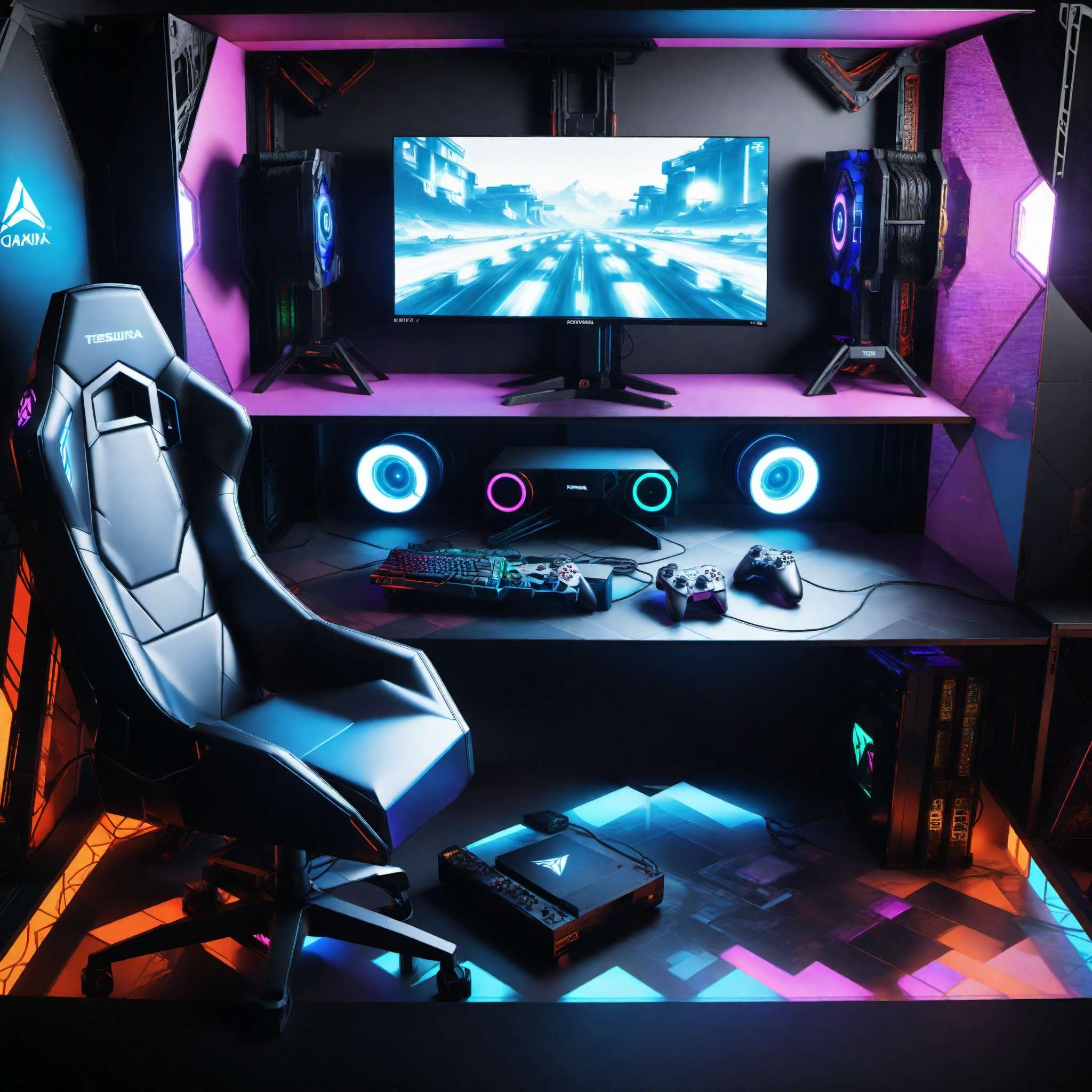
PC Gaming vs Console Gaming: The Cost Factor
Dive into the economics of PC and console gaming. Which platform offers the best value for money? Let's crunch those numbers!
Dive into the longstanding debate between PC gaming and console gaming in this comprehensive blog post. We explore the cost aspects of each platform, from initial purchase to upgrades and game expenses. Analyzing aspects such as hardware longevity, resale value, and the cost implications of exclusive games, we present a detailed comparison to help you understand where your dollars are going. Whether you’re a casual gamer or a hardcore enthusiast, this guide offers valuable insights to help you make an informed decision in the PC vs console debate.
Introduction: The Eternal Debate

© Copyright , ZombieBunny.Org
Overview of the console vs PC gaming debate
The battle between PC gaming and console gaming has been a longstanding debate in the gaming community. Each platform has its unique strengths, with PC gaming often hailed for its superior graphics, extensive game library, and customizable hardware. On the other hand, console gaming, with its ease of use, convenient setup, and exclusive titles, provides a straightforward and immersive gaming experience.
However, the choice between the two often boils down to a critical factor – cost. The financial implications of choosing one platform over the other extend beyond the initial purchase. It includes aspects such as the cost of games, upgrades, longevity of the hardware, and the value you get from the device’s versatility. In this blog post, we delve deep into these cost aspects, providing an exhaustive comparison of the expenses associated with PC gaming versus console gaming. In the end, our goal is to give you a comprehensive understanding of where your dollars are going, helping you make an informed choice in the PC versus console gaming debate.
Introduction to the cost factor in the debate
While gaming is a beloved pastime for many, it’s also a significant investment. Whether you’re a casual gamer or a dedicated enthusiast, the cost is a major factor that guides your choice between PC and console gaming. It’s not simply about the initial cost of purchasing a gaming PC or console. There’s far more to consider, from the price of games and potential hardware upgrades to the expected lifespan of your setup and its resale value.
The cost factor in the PC versus console debate is multifaceted and complex. It’s about understanding the long-term financial commitment associated with each platform. For instance, gaming PCs often have higher upfront costs but offer advantages like cheaper games and hardware upgradeability. Conversely, game consoles may have a lower initial price point but come with potentially pricier games and less flexibility in upgrades. By exploring these cost dynamics, we aim to provide a clear and comprehensive picture of the financial implications of your choice. Whether you’re a hardcore gamer looking to maximize your investment or a casual player seeking the best bang for your buck, understanding these cost differences can guide you in making the best choice for your gaming journey.
Brief description of the sections in the blog post
In this blog post, we will navigate through various sections, each focusing on key cost-related aspects of PC and console gaming. We’ll start with a thorough examination of the console gaming ecosystem and the PC gaming universe, detailing the costs of hardware, software, and other associated expenses. We’ll then dive into a comparative analysis of game prices across both platforms, followed by a discussion on the financial implications of keeping your hardware up to date.
Further sections will delve into factors like the longevity and lifespan of your gear, its resale value, and the cost implications of exclusive games. We’ll also explore the value you get from the flexibility and versatility that these platforms offer. Each section will provide a deep dive into these cost factors, providing you with a comprehensive understanding of where your money goes in the PC versus console debate.
In our final thoughts, we’ll recap the insights gained, consider personal preferences and budget considerations, and offer some guidance on how to navigate this complex decision. Whether you’re a seasoned gamer or a newbie to the gaming world, this blog post will serve as an in-depth guide to the financial considerations of your gaming investment.
The Console Gaming Ecosystem: A Price Perspective

© Copyright , ZombieBunny.Org
Cost of consoles
When it comes to the initial outlay for console gaming, the cost is relatively straightforward. Gaming consoles like the Xbox Series X, PlayStation 5, or Nintendo Switch have set retail prices, which vary depending on the specific model and bundle package you choose. For instance, at the time of writing, the Xbox Series X retails at around $500, the PlayStation 5 is priced similarly, while the Nintendo Switch is available for about $300.
However, it’s important to note that these prices can fluctuate based on factors such as demand, availability, and the release of newer models. Furthermore, consoles often come in different versions. For example, the PlayStation 5 has a standard edition and a cheaper, digital-only version. The digital edition eliminates the disc drive, which can reduce the cost, but also limits your ability to play physical games or Blu-rays. Therefore, when considering the cost of gaming consoles, it’s essential to take into account the price of the unit itself, the version that suits your preferences, and the potential for price changes over time.
Cost of games for consoles
Once you’ve purchased your console, the next significant expense is the games themselves. The cost of new games for consoles tends to be quite standardized, with new AAA titles typically launching at around $60. However, with the introduction of next-generation consoles like the PlayStation 5 and Xbox Series X, some publishers are increasing their prices to $70 for new releases.
While these prices may seem steep, there are ways to mitigate these costs. Many gamers take advantage of sales and discounts offered by physical retailers and digital storefronts like the PlayStation Store or Xbox Marketplace. Additionally, subscription services like Xbox Game Pass or PlayStation Plus offer access to a library of games for a monthly fee, providing excellent value for gamers who play frequently.
However, it’s worth noting that console games, especially new releases, are generally more expensive than their PC counterparts. This is due, in part, to the fees that console manufacturers charge publishers to sell on their platforms. So, while there are ways to save, the cost of games is a significant factor in the overall expense of console gaming.
Other associated costs in console gaming
Beyond the cost of the console and games, there are other expenses associated with console gaming that are often overlooked. One of these is the cost of online services. To play most console games online, a subscription to the console manufacturer’s online service is required. For instance, PlayStation Plus and Xbox Live Gold both retail for about $60 per year.
Additionally, accessories can add to the cost. Extra controllers for multiplayer gaming, charging docks, or premium headsets can all significantly increase your investment. And if you’re seeking a more immersive experience, peripherals like steering wheels for racing games or VR headsets can escalate costs even further.
Also worth considering are potential repair costs. While consoles generally come with a warranty, once that warranty expires, any necessary repairs will be out-of-pocket expenses. And if your console is beyond repair, you may need to replace it entirely.
Lastly, electricity usage, while minimal, can also factor into the overall cost. Consoles consume power, and while it’s not a significant expense, it’s an ongoing cost that’s worth bearing in mind. Therefore, when calculating the total cost of console gaming, it’s important to factor in these additional expenses to get a true picture of your gaming investment.
The PC Gaming Universe: An Economic Evaluation
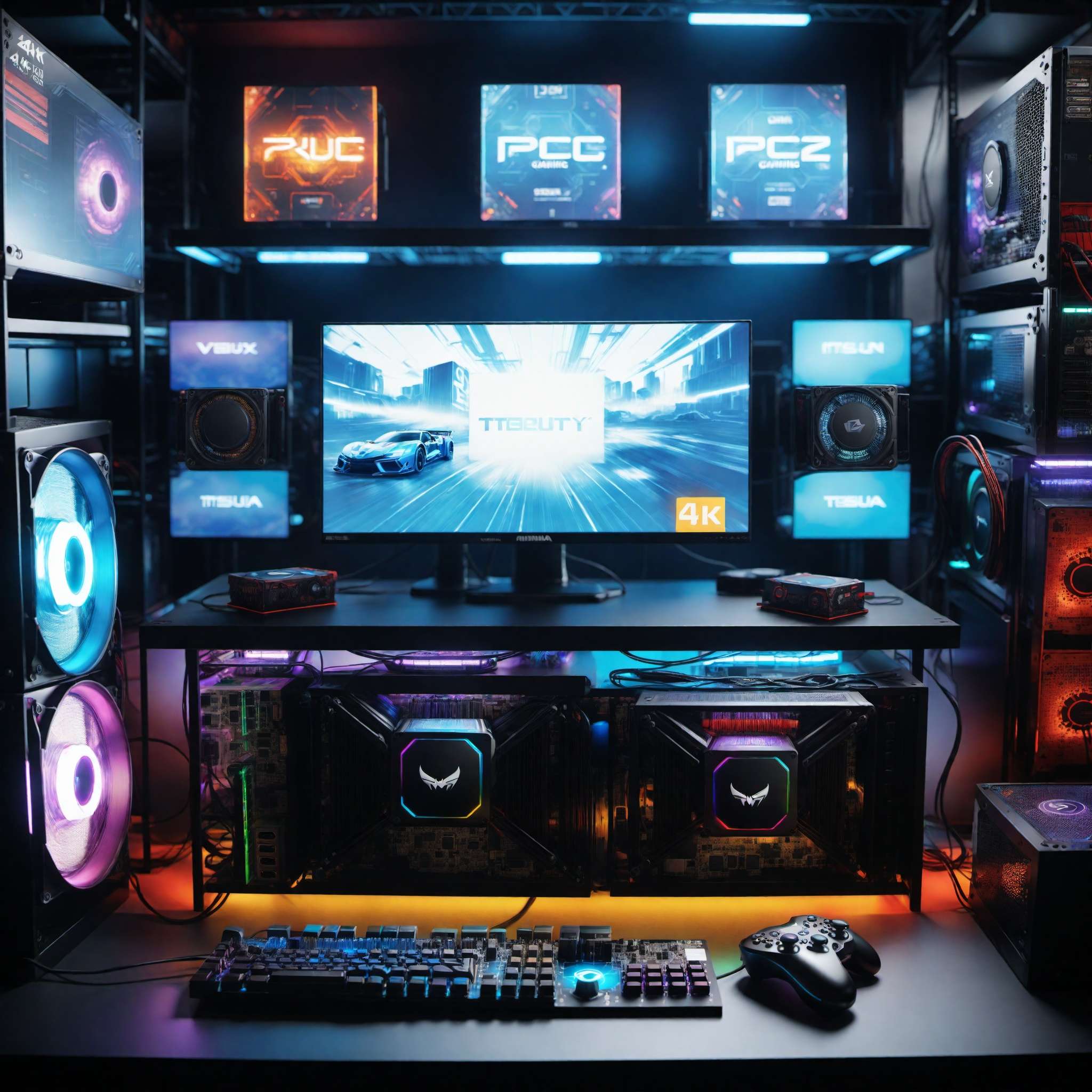
© Copyright , ZombieBunny.Org
Cost of gaming PCs
When it comes to PC gaming, costs can vary dramatically based on the performance level you’re aiming for. You can build a modest gaming PC for around $500, but for a high-end setup capable of running the latest games at maximum settings, you might be looking at an investment of $1,500 or more. These costs primarily go towards components like the processor, graphics card, RAM, storage, and power supply, not to mention a case to house it all.
However, the cost of the PC itself is only part of the story. You’ll also need a monitor, keyboard, and mouse. Depending on your preferences, these can range from relatively inexpensive to very high-end, adding several hundred dollars to your total cost. If you’re starting from scratch with no accessories, the cost of getting into PC gaming can be quite high.
It’s also worth noting that building a PC involves a time investment, especially for those new to the process. While many gamers enjoy the building process, for others it can be a daunting task. Pre-built PCs are an alternative, but you often pay a premium for the convenience. So, while PC gaming offers a lot of flexibility and potential for superior performance, it often comes with a higher upfront cost compared to console gaming.
Cost of games for PCs
When it comes to the cost of games, PC gamers often have an advantage. PC games are typically cheaper than their console counterparts, especially when it comes to new releases. This is largely due to the competitive nature of online stores like Steam, Epic Games Store, and GOG, where regular sales and discounts are common.
For instance, during sales events, you can often find AAA games at significantly reduced prices, sometimes even within a few months of release. This is a stark contrast to the console gaming ecosystem, where new games typically retain their full price for a longer period.
Another cost-saving factor for PC gamers is the availability of numerous free-to-play titles, from competitive shooters like ‘Valorant’ to battle royales like ‘Fortnite’. Moreover, subscription services like Xbox Game Pass are also available for PC, offering a library of games for a monthly or annual fee.
Lastly, backwards compatibility on PC means that older games can often be picked up for a very low price. With no need to rebuy games when a new ‘generation’ of PC comes out, the game library you build can last indefinitely. So while the initial investment in PC gaming can be high, the cost of games often balances out this expense over time.
Other associated costs in PC gaming
Beyond the cost of the PC and games, there are several other expenses associated with PC gaming that should be accounted for. For instance, maintenance and potential upgrade costs can add up over time. As technology evolves, you may need to replace parts like the graphics card or processor to keep up with the latest games. While this allows for a degree of future-proofing not present with consoles, it is an ongoing cost that needs to be factored in.
Software is another consideration. While the operating system may be a one-off cost, antivirus software and other utilities have ongoing costs. Additionally, certain games may require a subscription fee, and while these are less common on PC than console, they are a factor for some games.
Peripherals, too, can add to the cost. A good gaming keyboard and mouse, a comfortable chair, a headset with a microphone, or even multiple monitors can all enhance the gaming experience but come with their own price tags.
Lastly, as with console gaming, electricity usage is a factor. High-end gaming PCs can consume a significant amount of power, particularly when used for extended periods. This is a smaller, ongoing cost that should also be factored into the total cost of PC gaming. So, while PC gaming offers significant benefits, it’s essential to consider all the associated costs.
Game Prices: Console vs PC
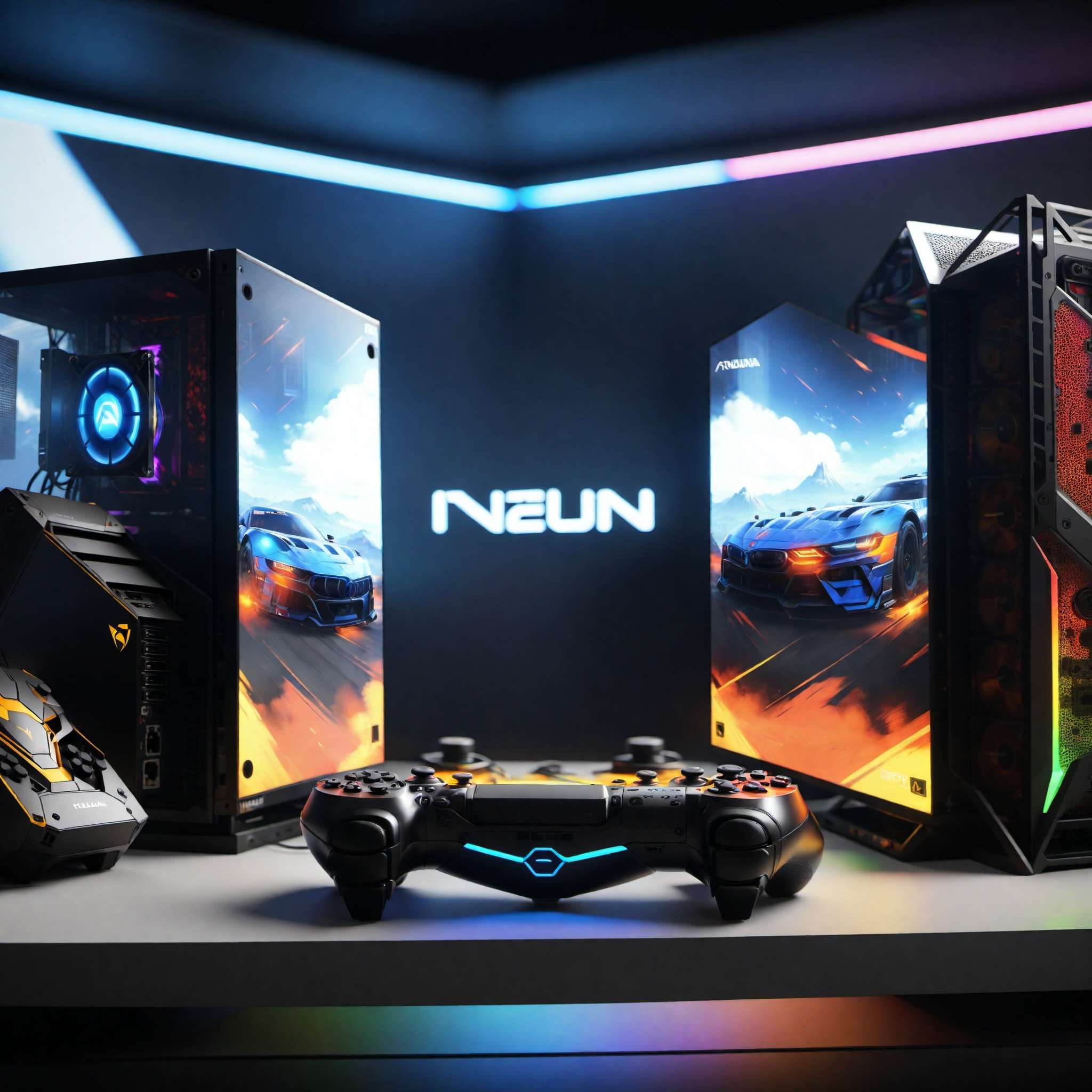
© Copyright , ZombieBunny.Org
Console game prices
In the world of console gaming, the pricing of games tends to be more standardized compared to PC gaming. Newly-released AAA titles for consoles typically retail at around $60, although we’re starting to see a shift towards $70 with the advent of next-gen consoles like the PlayStation 5 and Xbox Series X. This price usually holds for both physical copies bought in stores and digital versions purchased through online platforms like the PlayStation Store or Xbox Store.
However, these prices can fluctuate based on a few factors. Special editions or collector’s editions of games often come with a higher price tag due to additional content or physical merchandise. Additionally, older games often decrease in price over time, especially when they are sold as ‘pre-owned’ at retail stores.
While sales and discounts do occur in the console gaming ecosystem, they are generally less frequent and less substantial than on PC gaming platforms. Furthermore, console gamers often have to contend with the cost of online services to access multiplayer features in games, adding to the overall expense. Overall, while console game prices can be predictable, they are usually higher compared to PC game prices, making them a significant factor in the cost of console gaming.
PC game prices
In the realm of PC gaming, there’s a significant difference in how games are priced compared to consoles. While new AAA titles can still launch at the $60 mark, it’s common to see these prices drop more quickly on PC. This is largely due to the competitive nature of digital distribution platforms like Steam, Epic Games Store, and GOG, which regularly offer sales and discounts, even on recent releases.
Furthermore, PC gaming offers a wealth of indie games that are often priced lower than AAA titles, providing more variety and affordability. There’s also an extensive selection of free-to-play games available on PC, many of which are top-quality titles that offer hours of gameplay without requiring any investment.
Another significant cost-saving aspect of PC gaming is the presence of third-party key resellers. These platforms offer game keys at a fraction of the retail price, though it’s important to use reputable sites to avoid potential issues. Also, platforms like Humble Bundle offer bundles of games for a pay-what-you-want price, often with a portion of the proceeds going to charity.
In conclusion, while the initial cost of setting up a gaming PC can be high, the cost of games themselves is often lower than on consoles. This, coupled with the frequent sales and discounts, makes the ongoing cost of PC gaming potentially more affordable in the long run.
Comparison and analysis of game prices
When comparing game prices between PC and consoles, several factors come into play. At face value, the prices for new AAA releases are similar across both platforms, often debuting at around the $60 mark. However, the differences become more evident as we dive deeper into the nuances of each platform’s gaming ecosystem.
PC games often see a price drop sooner after release than console games, thanks to the competitive nature of online marketplaces like Steam and Epic Games Store. Sales and discounts are more frequent and often more substantial on PC, allowing gamers to add to their libraries at a reduced cost. Additionally, the vast array of indie games and free-to-play titles on PC offers gamers more options at a lower price point.
Conversely, while console games can retain their initial price point for longer, there are ways for console gamers to save. Sales do occur, though less frequently, and pre-owned games offer a way to play for less. Subscription services like PlayStation Plus or Xbox Game Pass also offer substantial value, providing a library of games for a monthly fee.
In conclusion, while the cost of individual games may be higher on consoles, the overall cost can be mitigated through sales, buying pre-owned, or using subscription services. Meanwhile, PC gamers often benefit from lower prices overall, frequent sales, and a vast selection of lower-cost indie and free-to-play games.
Cost of Upgrades: Keeping up with the Gaming World
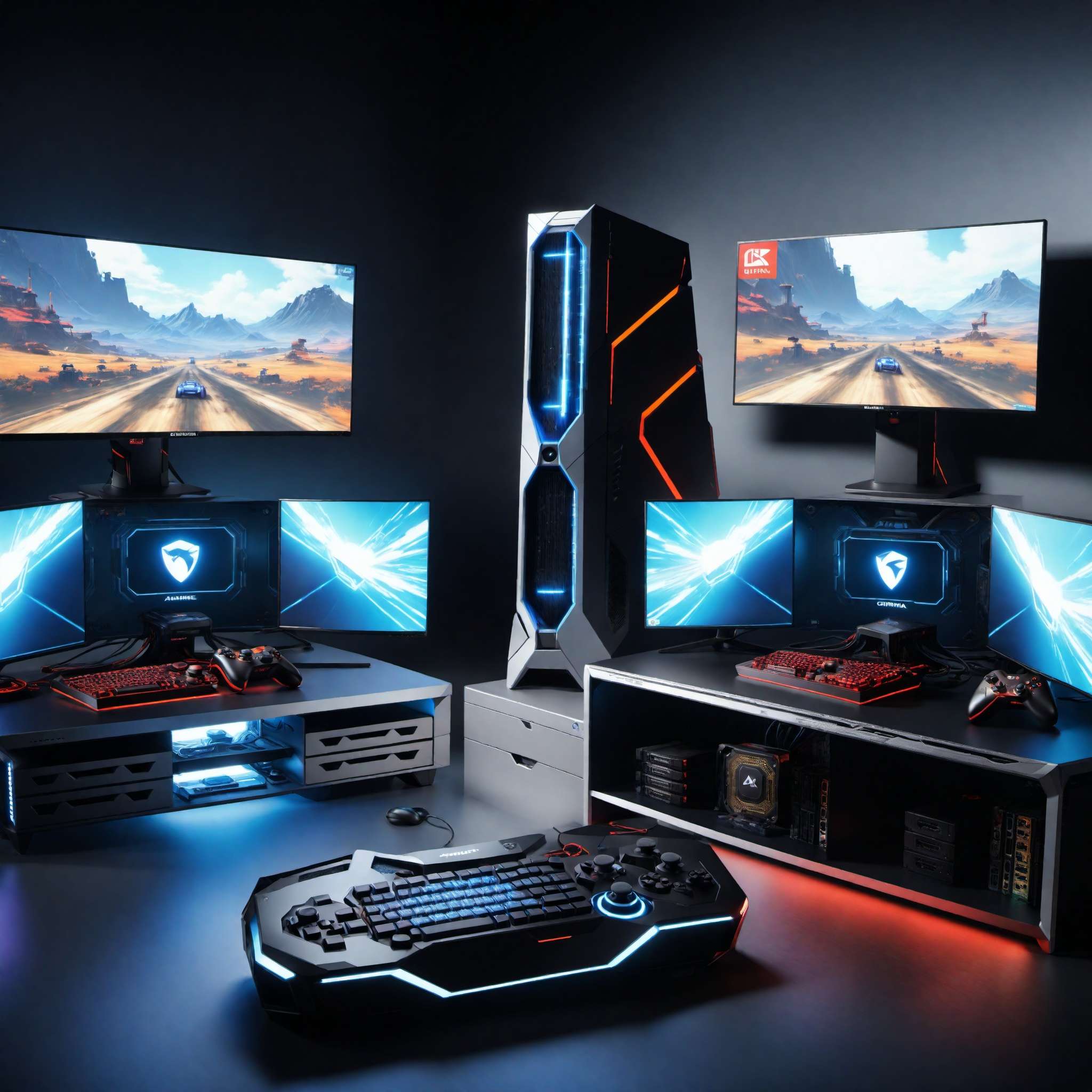
© Copyright , ZombieBunny.Org
Upgrade costs in console gaming
In the context of console gaming, the concept of upgrades is quite different from PC gaming. Essentially, when a new console generation is released, the upgrade generally involves buying the new console. This is a significant expense, with new consoles like the PlayStation 5 and Xbox Series X retailing at around $500 at launch.
It’s important to note that new console generations don’t come around every year. Typically, a console generation lasts around 5-7 years. So while the cost of upgrading to a new console is high, it’s a less frequent expense compared to potential upgrades in the PC gaming world.
However, during a console’s lifecycle, hardware revisions or upgraded models may be released. For example, the PlayStation 4 saw the release of a slimmer model and a more powerful ‘Pro’ model during its lifetime. These offer improvements like smaller form factors, quieter operation, or better performance, but they also mean an additional cost for gamers who wish to upgrade.
Another potential upgrade cost comes in the form of accessories. From additional controllers for multiplayer games to virtual reality headsets, these can add to the overall investment in your gaming setup. So, while the upgrade path for consoles is more straightforward than PCs, it comes with its own set of costs that gamers need to consider.
Upgrade costs in PC gaming
Compared to console gaming, the upgrade path in the world of PC gaming is more complex and can potentially be more expensive. Unlike consoles, where upgrades generally mean buying the next generation console, PCs can be upgraded piecemeal. This means you can upgrade individual components like the graphics card, processor, RAM, and storage as per your needs or as newer, more powerful versions come out.
While this allows for a degree of future-proofing and customization not available with consoles, it also means an ongoing cost. High-end graphics cards or processors can be quite expensive, easily running into several hundreds of dollars. Plus, with technology constantly evolving, new components are regularly being released.
Furthermore, while it’s possible to sell your old components to help offset the cost of new ones, this isn’t always a reliable way to recoup costs, as the resale value of computer components can drop quickly.
Additionally, upgrading a PC isn’t always just about hardware. Software upgrades, such as new versions of Windows, can also come with costs, although these are typically less frequent.
In summary, while PC gaming allows for greater customization and the ability to stay at the cutting edge of performance, it also comes with more frequent and potentially higher upgrade costs. This is a key factor to consider when comparing the cost of PC gaming with console gaming.
Comparison of upgrade costs
When comparing the costs of upgrades in console gaming and PC gaming, we see two different paradigms. Console gamers generally face a larger one-time cost every 5-7 years when a new console generation is released. For instance, upgrading to the PlayStation 5 or Xbox Series X from their respective previous models would set a gamer back by around $500. Smaller upgrades might occur within a console’s lifecycle, such as the purchase of a more powerful or slimmer model, or the addition of accessories like VR headsets.
On the other hand, PC gamers have a more continuous upgrade path. Individual components like graphics cards, processors, and storage can be upgraded separately, allowing gamers to keep their systems up-to-date with the latest technology. However, these upgrades can be quite expensive, especially for high-end components. And with new hardware regularly being released, upgrade costs can accumulate over time.
In essence, console gamers face fewer, but potentially higher, upgrade costs, while PC gamers have more frequent, but smaller, upgrades. However, the total cost over time depends heavily on how frequently a PC gamer chooses to upgrade and how much they’re willing to spend. Likewise, for console gamers, the cost can vary depending on whether they choose to upgrade to every new console or stick with their current model for its entire lifecycle. This makes the comparison of upgrade costs a complex but crucial part of the PC gaming vs console gaming debate.
Longevity and Lifespan: The Cost of Time
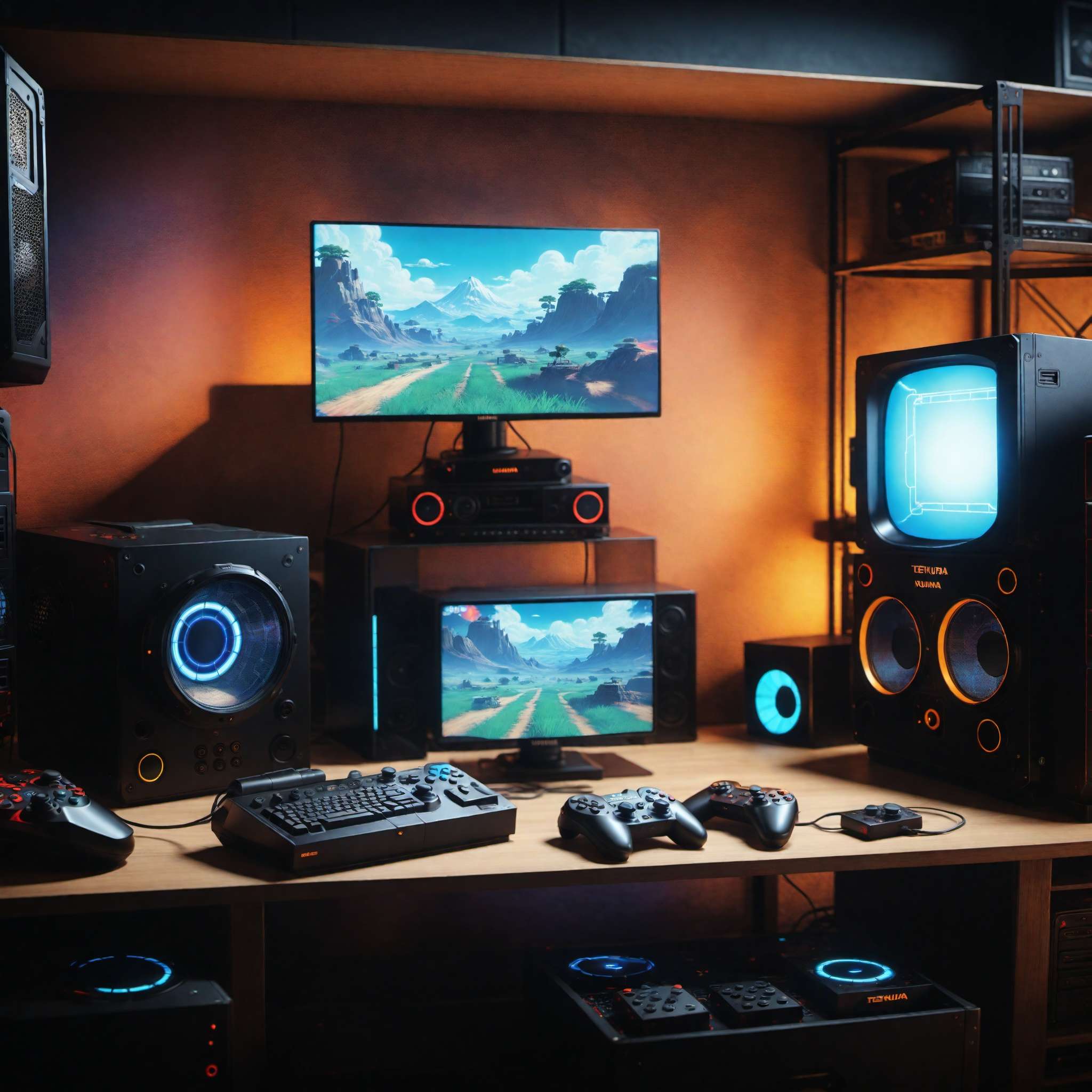
© Copyright , ZombieBunny.Org
Lifespan of gaming consoles
When discussing the lifespan of gaming consoles, it’s important to distinguish between the lifespan of the console hardware itself and the lifecycle of a console generation. In terms of hardware, modern consoles are built to last. It’s not uncommon for a console to last 10 years or more with regular use, provided it’s well taken care of. Issues can arise, of course, but most consoles will provide many years of service before they start experiencing hardware failures.
On the other hand, a console generation typically lasts around 5-7 years. This is the period from when a new console is released until its successor comes out. During this time, game developers focus on this generation, optimizing their games to run on its hardware. When the next generation arrives, developers gradually shift their focus to the new hardware, and the older consoles slowly become obsolete from a software perspective. While they can still play all the games released during their lifecycle, they won’t be able to play newer games designed for the next generation.
In summary, while the physical hardware of a console can last a decade or more, the effective lifespan of a console – in terms of being able to play the latest games – is usually around 5-7 years. This lifespan can extend further if gamers are content with playing older games or if developers continue to support the older generation, as has been seen with the prolonged lifecycle of the PlayStation 4 and Xbox One.
Lifespan of gaming PCs
The lifespan of a gaming PC is a bit more complex to define compared to consoles, mainly because PCs can be upgraded and customized. With regular upgrades, a PC can keep up with the technological advancements and continue running the latest games for many years. Even without upgrades, a well-built gaming PC can last a long time, although its ability to run the latest games at high settings will diminish over time.
In terms of hardware, the lifespan of individual components can vary. Processors, for example, can last a decade or more, while graphics cards might start showing their age after 4-5 years, especially if you’re aiming to run games at high settings. However, it’s important to note that the longevity of PC components can be significantly influenced by factors like usage habits, cooling solutions, and dust management.
From a software perspective, PCs have an advantage over consoles. Backwards compatibility is a standard feature in PC gaming, meaning that older games will still run on newer systems. This extends the effective lifespan of a gaming PC, as gamers can continue to play their existing game library even as they upgrade their system.
In conclusion, the lifespan of a gaming PC can be extended through regular upgrades, and its effective lifespan in terms of software compatibility is near-indefinite. However, the cost and effort of upgrades, maintenance, and potential repairs are factors that should be considered in the overall cost of PC gaming.
Cost implications of device lifespans
The lifespan of your gaming device, whether it’s a console or a PC, has significant cost implications. With a console, you’re making a one-time investment that, on average, will last you around 5-7 years in terms of software compatibility and potentially longer in terms of hardware longevity. This makes the cost of console gaming relatively predictable, although the inability to upgrade individual components means that to stay current with the latest games, you’ll need to buy a new console when the next generation is released.
With a gaming PC, the initial investment can be higher, but the ongoing costs are spread out over the device’s lifespan. The ability to upgrade individual components means you can keep pace with technological advancements, extending the life of your PC. However, this comes with the ongoing cost of those upgrades. The lifespan of a PC can be much longer than a console, especially in terms of software compatibility, but it requires a continuous investment.
In essence, the cost over time of console gaming is more front-loaded and predictable, while PC gaming can involve a higher initial cost and ongoing upgrade costs. The best choice depends on your budget, how important it is for you to play the latest games at the highest settings, and whether you’re willing to invest time and money in upgrades and maintenance.
Resale Value: Cashing in on Your Old Gear
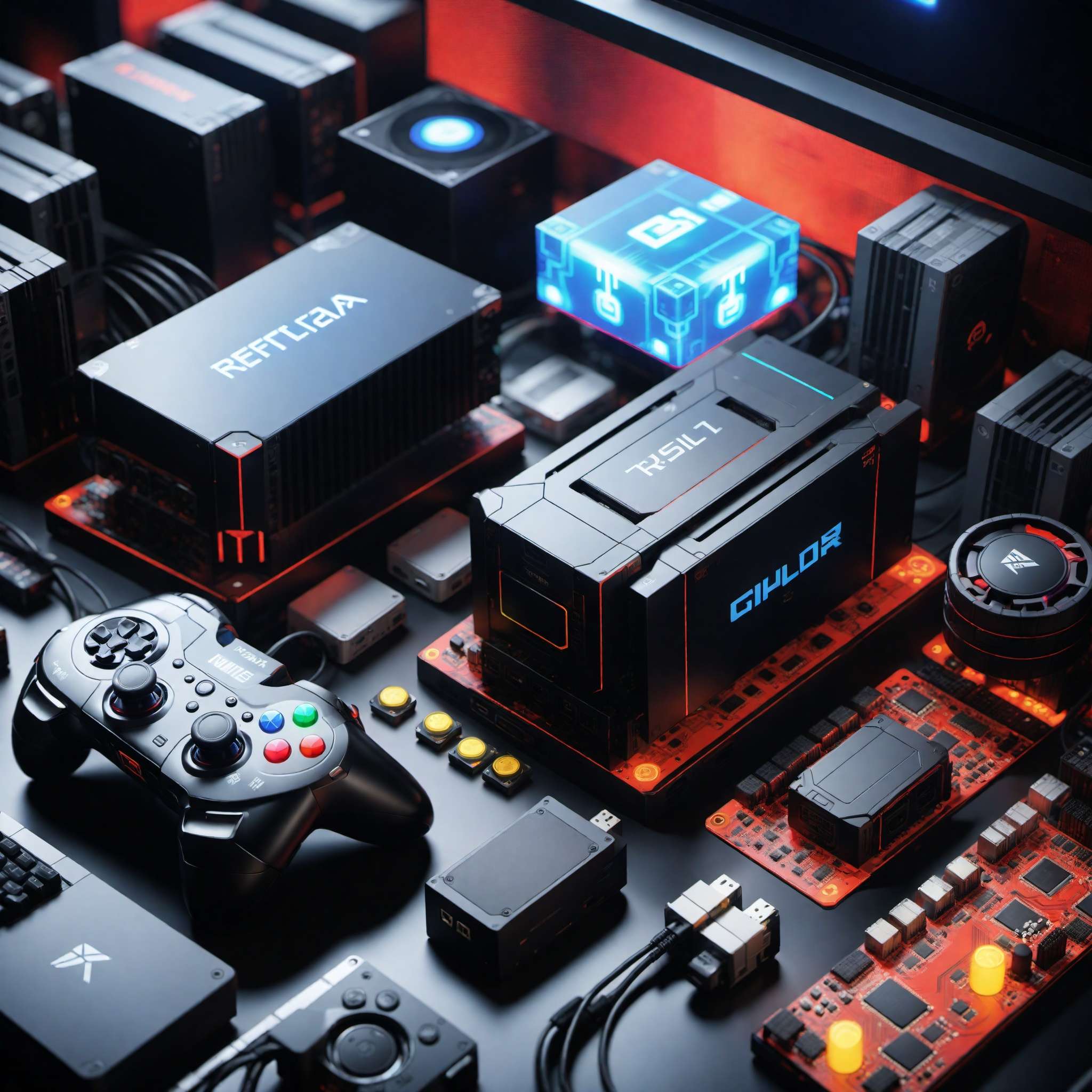
© Copyright , ZombieBunny.Org
Resale value of consoles
One aspect of console gaming that can mitigate the overall cost is the potential for reselling your old gear. When a new console generation is released, there’s usually a market for the outgoing generation. While you won’t make back the full amount you paid, selling your old console can help offset the cost of the new one.
The resale value of a console depends on several factors. The condition of the console is key; a well-maintained console with no technical issues will fetch a higher price. Inclusion of accessories, like controllers or games, can also increase the value.
The timing plays a role too. The resale value tends to drop when a new console generation is announced, as gamers start looking forward to the new hardware. However, in the early days of a new console’s release, when availability might be limited, outgoing consoles can still hold their value fairly well.
It’s also worth noting that limited edition consoles or those with larger storage capacities may have a higher resale value. In conclusion, while selling your old console won’t cover the full cost of upgrading to a new one, it can make the upgrade more affordable. This resale value is a factor that can reduce the overall cost of console gaming and is something PC gamers might not have to the same extent.
Resale value of PCs
In contrast to consoles, the resale value of gaming PCs is a bit more complex. While you can sell a used PC as a whole unit, another option is to sell individual components. High-end graphics cards and processors can retain their value fairly well, especially if they’re still relatively current. This allows you to recoup some of the cost when upgrading these components.
However, the resale value of PC components can drop quickly as newer models are released. The rapid pace of technological advancements in the PC hardware world means that even high-end components can become outdated within a few years.
The condition of the components also plays a significant role. Components that have been well taken care of, kept cool, and not pushed beyond their limits with overclocking will generally fetch a higher price.
Selling a whole PC can be more challenging, as potential buyers may prefer to build their own PC with new components, or they may have specific requirements that your PC doesn’t meet. However, for those who don’t want the hassle of building their own PC, a well-maintained, used gaming PC can be an attractive option.
Ultimately, while the resale value of a gaming PC or its components won’t fully offset the cost of upgrades or a new PC, it can help make the hobby more affordable. It’s another factor to consider in the overall cost of PC gaming compared to console gaming.
Implication of resale value on overall costs
The potential to resell your old gear and recoup some of the initial cost is a significant factor in the overall cost of both console and PC gaming. For console gamers, selling an old console can help offset the cost of upgrading to a new console generation. While the resale value is typically a fraction of the original purchase price, it can still make a significant difference, especially for gamers who upgrade to each new console generation.
On the PC side, the resale market is more fragmented. While selling a whole PC might be more challenging due to potential buyers’ specific requirements, individual components like graphics cards and processors can retain a decent amount of their value, especially if they’re relatively current and well-maintained. This offers PC gamers a way to offset the cost of upgrades and keep their system up-to-date.
However, it’s worth noting that while resale can mitigate some of the expenses, it’s unlikely to cover the full cost of new gear or upgrades. Also, the process of selling used gear, whether it’s a console or PC components, requires effort and time.
In conclusion, the resale value is an important factor that can lower the overall cost of gaming, whether on console or PC. However, it’s one of many factors that need to be considered when comparing the costs of these two gaming platforms.
The Exclusive Games Factor: Cost of Missing Out
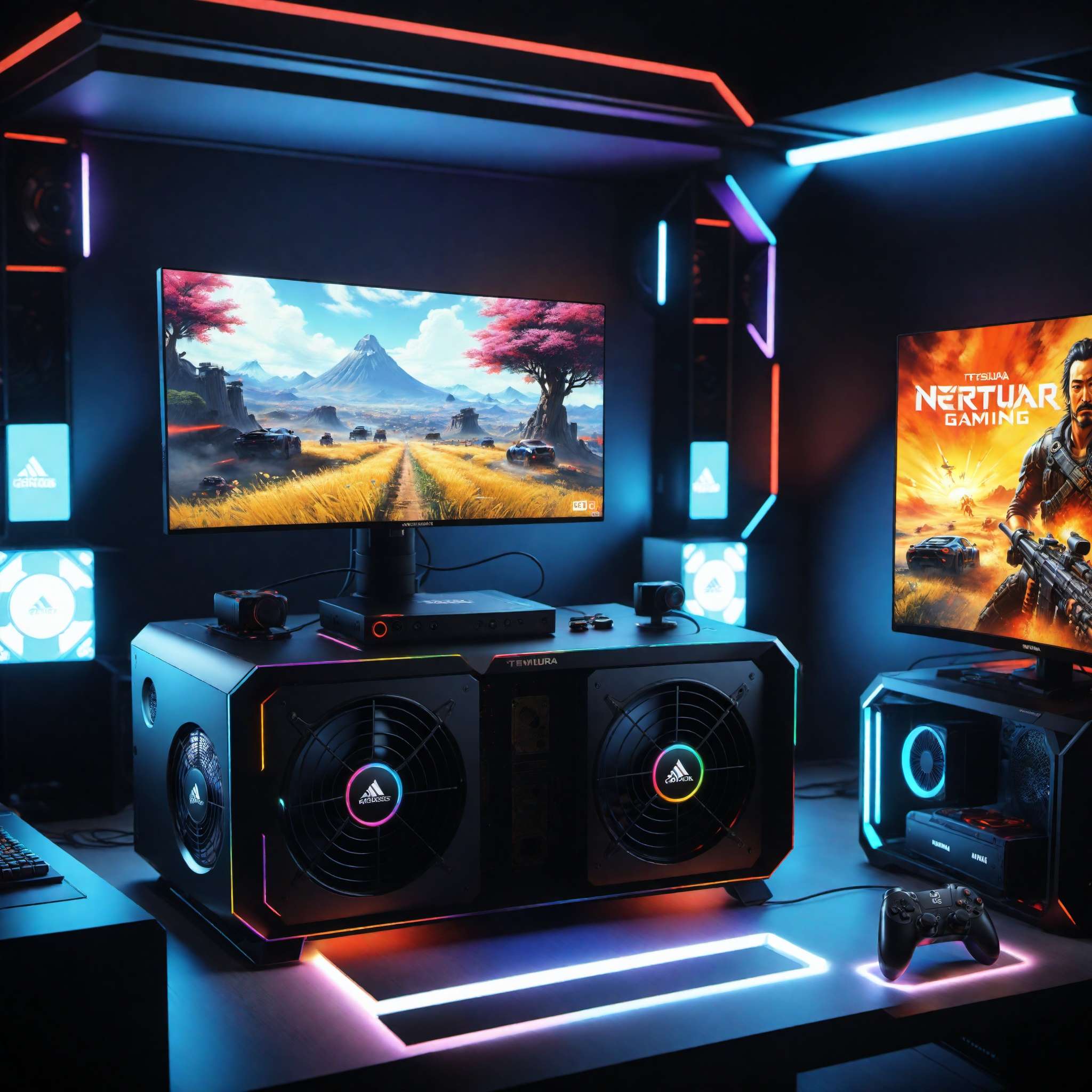
© Copyright , ZombieBunny.Org
Cost implication of exclusive games for consoles
One factor that can significantly impact the cost of gaming is the existence of exclusive games. These are games that are only available on a particular console, such as the PlayStation or Xbox. For gamers who are fans of these exclusives, this can be a major reason to choose a console over a PC, despite the potential cost implications.
Exclusive games for consoles typically retail at the same price as other new releases, around $60-$70. However, the cost implication comes in when you consider the need to own the specific console to play these games. If you’re a fan of ‘God of War’, you’ll need a PlayStation. If ‘Halo’ is more your style, you’ll need an Xbox. This means that to play these exclusives, you may need to invest in multiple consoles, significantly increasing your overall gaming costs.
Furthermore, exclusive games rarely see the same level of discounts as non-exclusives, especially in their first few years of release. They also tend to retain their value for longer, meaning even pre-owned copies won’t offer substantial savings.
In conclusion, if you’re a fan of multiple exclusive titles across different consoles, the cost of gaming can add up quickly. This is a cost implication unique to console gaming, as PC gaming doesn’t have the same level of exclusivity, making it a crucial factor to consider in the PC vs console cost debate.
Cost implication of exclusive games for PCs
While consoles are known for their exclusive games, the PC gaming world also has its share of exclusives. These are often indie games or titles from genres that traditionally do well on PC, such as real-time strategy or MMO games. Just like with console exclusives, if you’re a fan of these games, this could be a reason to choose a PC over a console.
PC exclusive games are typically priced similarly to non-exclusive titles, with AAA games costing upwards of $60 and indie titles being priced lower. However, due to the competitive nature of digital distribution platforms like Steam, these games often see discounts sooner after release.
The cost implications of PC exclusive games mainly come in the form of the initial investment in a gaming PC. While you can play many PC games on a budget or mid-range PC, to experience these games at their best, particularly AAA titles, you’ll need a high-end PC which can be quite expensive.
Moreover, while PC gaming lacks the console-type exclusivity where certain games are only available on a specific brand of PC, certain games are exclusive to specific digital distribution platforms. This means you might need to manage multiple accounts and game libraries, although this doesn’t generally involve any extra cost.
In conclusion, while the cost of PC exclusive games is comparable to non-exclusive titles, the initial investment in a gaming PC can be a significant cost factor. However, the frequent sales and discounts on PC games can help to offset this.
Analysis of exclusive games factor on overall gaming costs
Exclusive games are a unique factor that can significantly impact the overall cost of gaming, whether on console or PC. For console gamers, the cost implication of exclusive games is twofold. Firstly, there’s the need to own a specific console to play certain games. For fans of multiple exclusives across different consoles, this could mean investing in multiple consoles, significantly increasing the overall cost. Secondly, console exclusives tend to retain their value for longer, meaning they see less frequent and less substantial discounts compared to non-exclusive games.
In the PC gaming world, the exclusivity factor is less pronounced. While there are PC exclusive games, they don’t require a specific brand or type of PC to play. Any gaming-capable PC can play them. However, to experience these games at their best, particularly AAA titles, a high-end PC may be required. This initial investment can be a significant cost factor, although the cost of the games themselves can often be offset by frequent sales and discounts.
In conclusion, the cost implications of exclusive games depend largely on the gamer’s preferences. If you’re a fan of many exclusive titles, whether on console or PC, this factor can significantly increase your overall gaming costs. However, for those who aren’t tied to specific exclusives, this factor may have a less substantial impact on the total cost of gaming.
Flexibility and Versatility: Are You Paying for More Than Gaming?
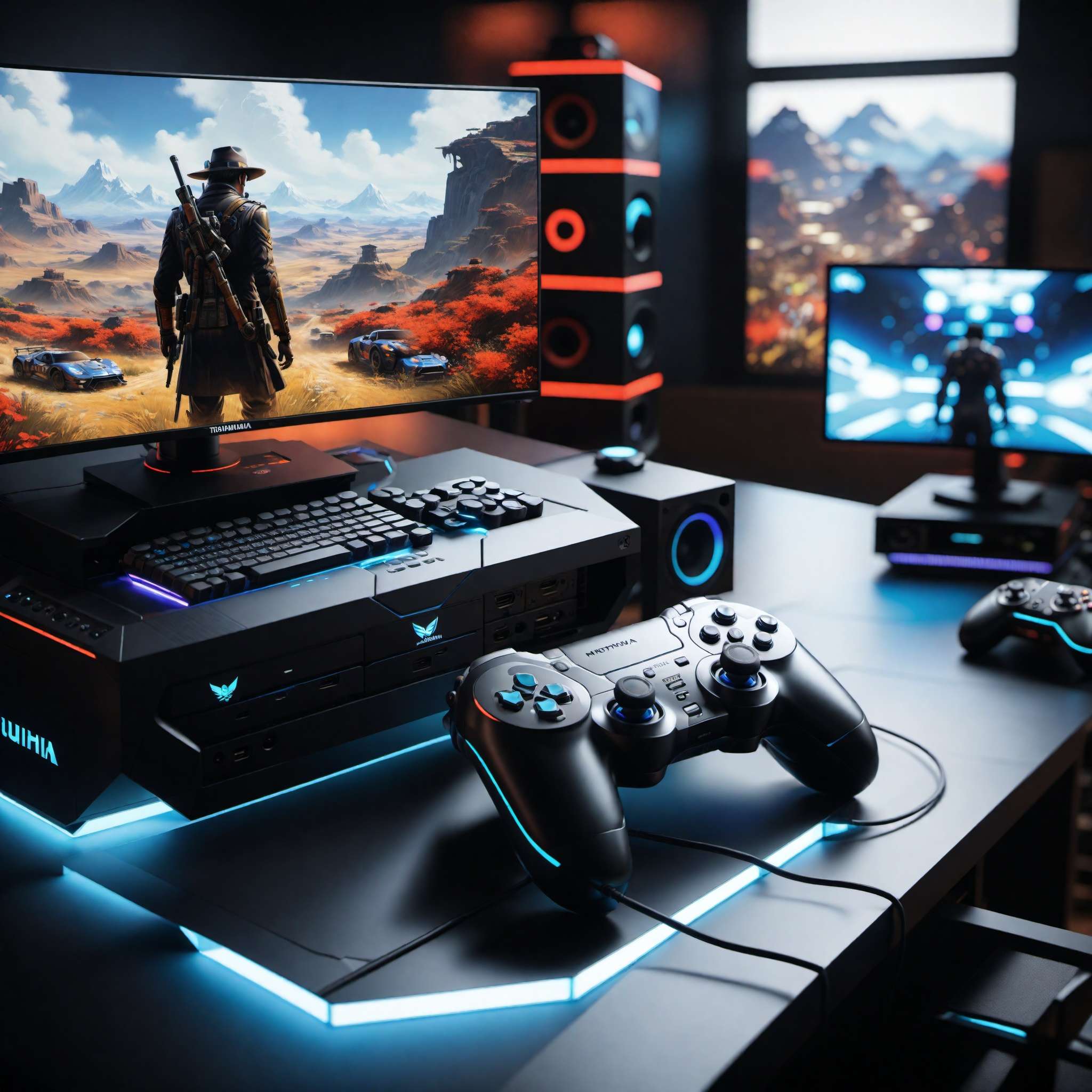
© Copyright , ZombieBunny.Org
Versatility of consoles
Modern gaming consoles offer more than just gameplay. They’ve evolved into multimedia centers that provide a range of entertainment options. From streaming movies and TV shows on Netflix, Amazon Prime, or Disney+ to playing music on Spotify, consoles offer more versatility than ever before.
Additionally, consoles like the Xbox Series X and PlayStation 5 even support 4K Blu-ray playback. This means that along with digital streaming, you can also enjoy your physical media collection in high quality. This combined functionality can reduce the need for other devices like a separate Blu-ray player or a streaming stick, potentially offsetting some of the console’s cost.
Some consoles also offer social features like voice and video chat, allowing you to connect with friends and other gamers. These features, combined with the ease of use and simplicity of consoles, make them an attractive option for many users.
However, it’s important to note that while consoles offer a good range of features, they’re still primarily gaming devices. They lack the full functionality and flexibility of a PC, which can be used for a wide range of tasks beyond entertainment. Still, for those looking for a device that can handle gaming and other forms of entertainment in a simple, user-friendly package, a console can be a cost-effective choice.
Flexibility of PCs
In terms of flexibility and versatility, PCs have a clear advantage over consoles. A PC is not just a gaming device; it’s a multi-purpose tool that can be used for a wide range of tasks. From browsing the web and streaming movies to professional work like graphic design or video editing, a PC can handle it all.
This versatility means that the cost of a gaming PC can be spread over multiple uses. For those who need a PC for work or other tasks in addition to gaming, the cost of the PC is not solely a gaming expense. This can make a gaming PC a more cost-effective choice compared to a console, especially for those who would need to buy a PC anyway.
Moreover, PCs offer a level of customization and upgradeability that consoles can’t match. This allows you to tailor your PC to your specific needs and preferences, whether that’s a focus on gaming performance, multimedia capabilities, or professional tasks.
While this flexibility comes with a higher initial cost compared to consoles, it also provides a level of value and longevity that can help offset this cost over time. So, while PCs can be a more expensive option for gaming, their versatility and flexibility can make them a worthwhile investment for many users.
Price implications of versatility and flexibility
The versatility and flexibility of a gaming device have significant price implications. For consoles, which are primarily gaming devices but also offer multimedia capabilities, the cost is somewhat offset by their ability to serve as a hub for various forms of entertainment. This can reduce the need for additional devices like a separate Blu-ray player or streaming device. However, the range of non-gaming tasks a console can handle is limited, restricting its overall value proposition.
In contrast, a gaming PC, while often more expensive upfront, offers a level of versatility that goes beyond gaming and entertainment. A PC can handle a wide range of tasks, from work-related activities to content creation, and everything in between. This means that the cost of a gaming PC can be viewed as an investment in a multi-purpose tool, rather than solely a gaming expense. This can make a gaming PC a cost-effective choice, especially for those who would be buying a PC for other tasks anyway.
Moreover, the flexibility and upgradeability of a PC can extend its lifespan, potentially offering better value over the long term. However, this also comes with the potential for additional costs in terms of upgrades and maintenance.
In conclusion, the price implications of versatility and flexibility are an important factor to consider in the cost of PC gaming vs console gaming. The best choice depends on your specific needs, preferences, and budget.
Conclusion: Making the Choice

© Copyright , ZombieBunny.Org
Recap of cost factors in console vs PC gaming
When weighing the cost of console gaming versus PC gaming, several key factors come into play. The initial investment, upgrade costs, lifespan, resale value, and the cost implications of exclusive titles and device versatility all contribute to the overall cost picture.
With consoles, the initial cost is typically lower, but the ability to upgrade hardware is limited to purchasing new console generations. The lifespan of a console, in terms of playing the latest games, is around 5-7 years. Resale value can offset some costs, and exclusive titles can be a significant draw, despite their potential cost implications. Consoles also offer versatile entertainment features, serving as a hub for various forms of media.
On the other hand, a gaming PC has a higher initial cost but offers the flexibility to upgrade individual components, potentially extending its lifespan. The resale value of components can also help to mitigate upgrade costs. While the PC platform has fewer exclusive titles, it offers unmatched versatility in terms of the range of tasks it can handle, from gaming and entertainment to work and content creation.
The final choice between console and PC gaming largely depends on personal preferences, gaming needs, and budget. Both platforms have their own cost advantages and drawbacks, making the decision a matter of which factors are most important to the individual gamer.
Personal preferences and budget considerations
Ultimately, the choice between console gaming and PC gaming comes down to personal preferences and budget considerations. Each platform has its own unique advantages and cost factors that make it more suitable for certain types of gamers.
If you value simplicity, ease of use, and the ability to play exclusive titles from major franchises, console gaming may be the right choice for you. Modern consoles also serve as versatile entertainment hubs, providing access to a variety of streaming services. The upfront cost of a console is typically lower than a gaming PC, making it a more budget-friendly option, especially for casual gamers.
On the other hand, if you value flexibility, the ability to upgrade and customize your device, and the potential for a wide range of uses beyond gaming, a PC might be the better choice. While the initial cost of a gaming PC can be high, especially for high-end setups, the cost can be spread over its many uses, potentially offering better value over time.
Remember, gaming is a personal experience and the best platform is the one that meets your individual needs, preferences, and budget. By considering the various cost factors of both console and PC gaming, you can make an informed choice that provides the best gaming experience for your investment.
Final thoughts on the cost factor in console vs PC gaming
In the debate of console gaming vs PC gaming, the cost factor plays a critical role. Both platforms offer unique gaming experiences and have their own advantages and drawbacks when it comes to cost.
Consoles are generally more affordable initially, easier to use, and serve multiple entertainment purposes. They offer exclusive games from major franchises and their hardware, while not upgradable, is optimized to provide seamless gaming experiences. However, their effective lifespan, in terms of playing the latest games, is often limited to the console’s generation lifecycle.
PCs, on the other hand, offer ultimate flexibility and versatility. While the initial cost can be high, especially for top-tier gaming setups, they offer the ability to upgrade individual components, potentially extending their lifespan and keeping up with technological advancements. They can handle a wide range of tasks beyond gaming, making them a multi-purpose investment.
Ultimately, there’s no one-size-fits-all answer to whether console or PC gaming is more cost-effective. It depends on what you value most in your gaming experience and how much you’re willing to invest. By understanding the cost implications of both platforms, you can make an informed decision that aligns with your gaming preferences and budget, ensuring the best value for your money.
Please support our site and purchase something from our store.







